This originally aired on the Catholic Faith Network’s show CFN Live: https://youtu.be/dAgoDRJBg5E Do you know…
This originally aired on the Catholic Faith Network’s show CFN Live: https://youtu.be/IATAIlqm-Ns
In the U.S, there are over 6 million police-reported car accidents annually. A car crash can be overwhelming but knowing what to do can make all the difference.” I know personally as I have been in several serious car accidents.
What are the first legal steps someone should take after a car crash?
First and foremost, safety is key. Here are three steps to take:
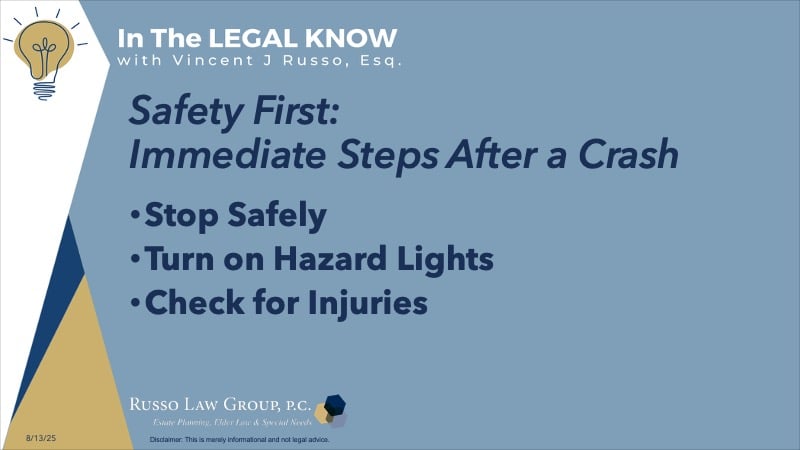
Safety First:
- Stop Safely: If your vehicle is drivable, move it to the side of the road or a safe location away from traffic.
- Turn on Hazard Lights: Activate your hazard lights to warn other drivers of the accident.
- Check for Injuries: Assess yourself and your passengers for any injuries. If anyone is seriously hurt, call 911 immediately.
Remember that it may be illegal to leave the scene of an accident before exchanging information (which is the case in New York), so stay at the scene.
Make sure everyone is okay and move to a safe location if possible. Then, call 911 to report the accident.
Emergency Services:
- Call 911: If there are injuries, call 911 immediately. Provide your location, the extent of injuries, and any other relevant information to the dispatcher.
- Wait for Help: Stay at the scene until emergency personnel arrive. If you need to move the vehicles due to safety concerns, document the original position with photos.
Even if it seems minor, having an official police report is critical for any legal or insurance claims.
Important Considerations at the Scene of the Accident
Important Considerations:
- Stay Calm: Try to remain calm and collected during the process to think clearly and act appropriately.
- Avoid Admitting Fault: Avoid making any statements about fault at the scene.
- Cooperate with Law Enforcement: Cooperate with any law enforcement officials who arrive at the scene .
- Follow Instructions: Follow the instructions provided by emergency personnel and law enforcement officers.
What information should you get from the other party?
At a minimum, you’ll want their full name, phone number, and address. Ask for their driver’s license and insurance card and take photos of both if you can. Also, jot down the make, model, and license plate number of their vehicle. If there are witnesses, get their contact information too.
And here’s a tip: avoid discussing fault or apologizing at the scene—it could be used against you later.
Exchange Information:
- Gather Information: Obtain the other driver’s name, contact information (phone number, address), driver’s license number, insurance company, and policy number.
- License Plates: Note the license plate numbers of all vehicles involved.
And don’t forget to document the scene: take photos of the vehicles, damage, license plates, and the surrounding area.
Document the Scene:
- Photos and Videos: Take pictures and videos of the accident scene, including vehicle damage, road conditions, and any visible injuries.
- Evidence: If there are any nearby surveillance cameras, note their location as they might have captured the accident.
These steps lay the foundation for protecting your rights.
Should you always call the police, even for minor accidents?
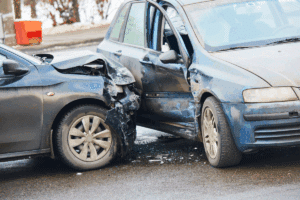
Plus, the police can help mediate the situation and ensure all parties exchange the necessary information. So, when in doubt, call the police.”
When should you contact your insurance company?
There are a number of steps to be taken. The first step is to file a claim.
Notify Your Insurer:
- File a Claim: Contact your insurance company to report the accident and initiate the claims process.
- Documentation: Provide all relevant information and documentation to your insurer.
- Act Quickly: “You should notify your insurance company as soon as possible, ideally within 24 hours of the accident.
Stick to the facts—what happened, where, and when. Avoid speculating about fault or the extent of injuries. Many policies require prompt reporting, so don’t delay.
- Avoid Quick Settlement: When it comes to legal traps, don’t settle with the insurance company too quickly. They may offer a lowball settlement before you fully understand the extent of your injuries. Consult an experienced personal injury attorney to ensure you’re fairly compensated. And remember, time is of the essence—there are deadlines for filing claims, so don’t wait too long to take action.”
And here’s a trap to avoid: don’t give a recorded statement to the other driver’s insurance company without consulting your own insurer or an attorney first. They may try to use your words against you.”
Should I contact a personal injury attorney?
There are a variety of reasons you may want to call a personal injury attorney after a car accident. Perhaps you feel the insurance reimbursement you are receiving is not enough to cover all your medical bills, car repair expenses, and cover for your loss of income. Or maybe you thought you were not seriously injured but discovered that your pain has worsened in the days since the accident, and you may need to pay more for medical bills than you expected.
At this point, if you are considering bringing a personal injury case, it is in your best interest to an experienced personal injury attorney who can advise you about your legal options. Taking legal action is not something you can do alone.
If you would like to speak with an experienced elder law attorney regarding your situation or have questions about something you have read, please do not hesitate to contact our office at 1 (800) 680-1717. We look forward to the opportunity to work with you.
Disclaimer: The information provided above is for general informational purposes only and is not legal advice.

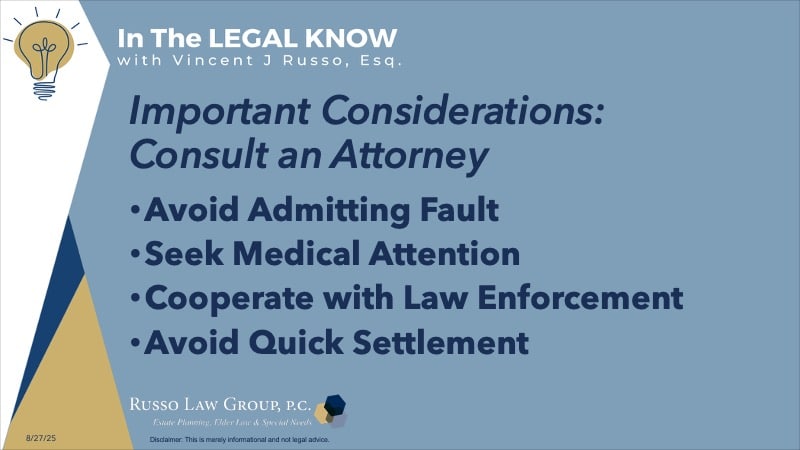
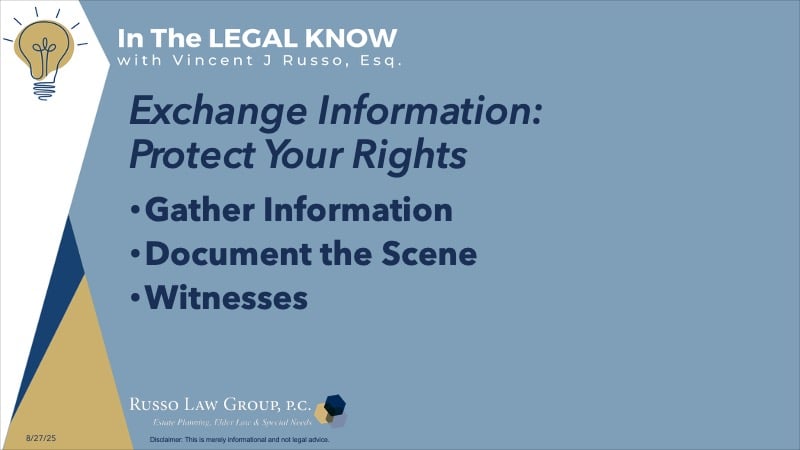
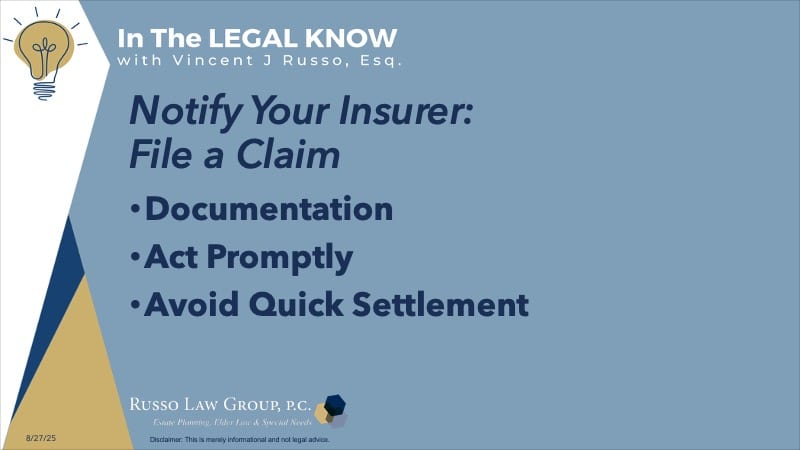
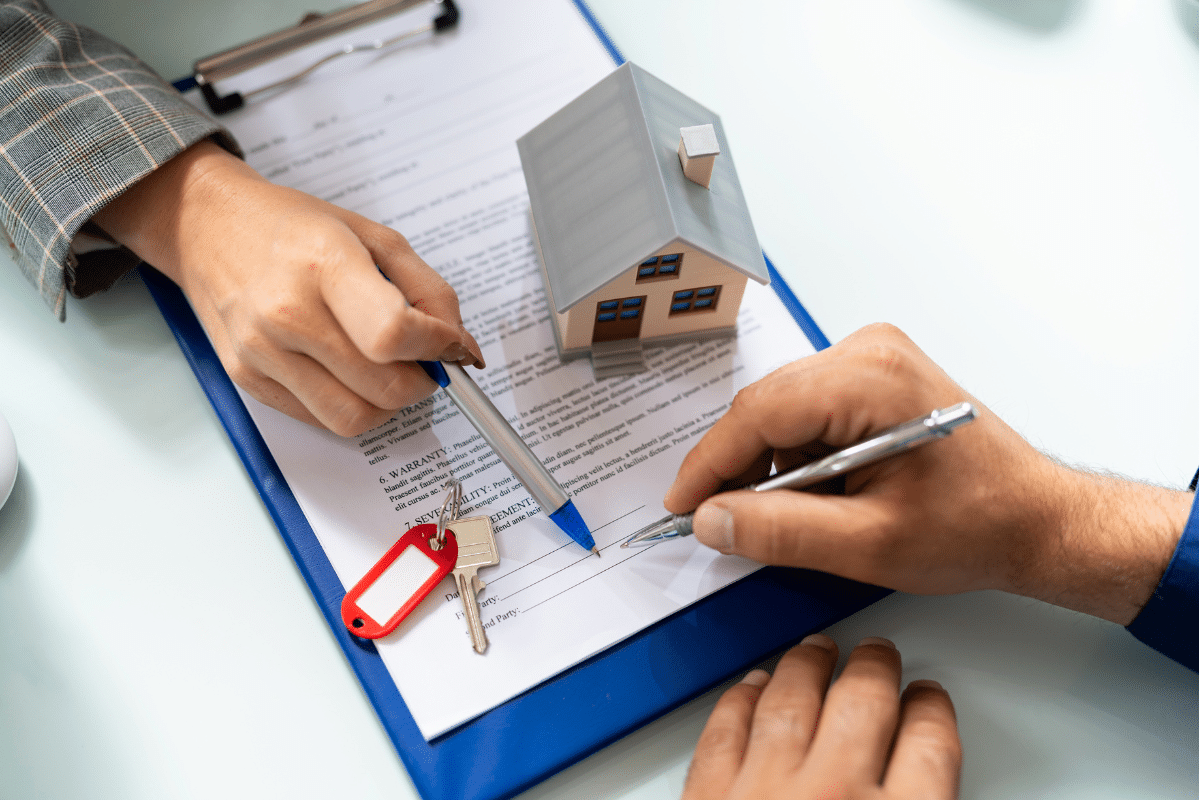

Comments (0)